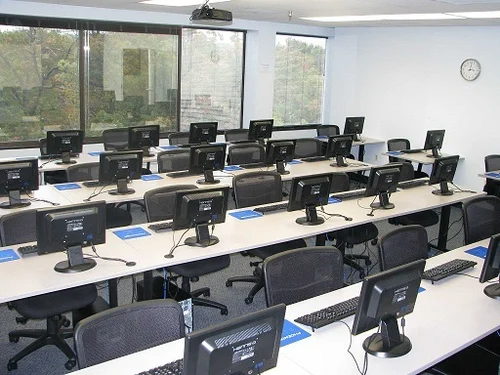Whether to rent or buy a computer has become essential for individuals and organizations in today’s quickly changing technology landscape. As an alternative to buying equipment entirely, renting a computer, also known as IT rental or computer on rent, has acquired a lot of support. Given this change, is renting a computer the best option for your technological requirements? One must consider various factors, from practical benefits to financial advantages, to come up with a solution.
Financial factors include:
The cost is one of the most important considerations when determining whether to rent a computer. Investing in high-quality laptops might be expensive up front, especially when looking at the most recent models with cutting-edge features. This financial barrier can prevent certain people or small businesses from accessing advanced technologies.
Renting a computer, on the other hand, gives a more reasonable financial arrangement. Renting involves a recurring rental cost that is easier to include in the budget than making a sizable down payment. This predictable expense can benefit companies looking to deploy resources effectively while keeping up with the most recent technological advancements.
Scalability and flexibility:
The flexibility that renting computers offers is another noteworthy benefit. Technology is developing at an unheard-of rate, so something that is cutting-edge now might be obsolete in a few years. People and organizations can more efficiently respond to these developments by choosing computer on rent. Without the inconvenience of selling or disposing of out-of-date equipment, there is the option to update to the newest versions when the rental time is through.
This adaptability is essential for enterprises with varying workloads. When demand is at its highest, they can easily rent more computers to keep up, and when the workload declines, they may reduce staff without being restricted by excess equipment.
Maintenance and assistance:
Maintenance and technical support are frequently included as a bonus when renting a computer. Any technical problems you encounter as a computer owner are your duty to resolve, either by using your knowledge or enlisting a third party’s help. But when you rent something, the rental company typically handles maintenance and repairs, ensuring that the item continues functioning as intended. This can save people and businesses money and time by preventing them from allocating resources for unforeseen technical issues.
Short-term projects include:
It rental can be a far more sensible option than buying one for short-term tasks or events. Imagine a business needing extra PCs for a special conference, trade fair, or training session. Purchasing new computers for such ad hoc needs might not be economical. Renting is a practical and effective solution to gain access to the required technology without making a long-term investment.
Environmental factors include:
The effects of the decisions on the environment cannot be disregarded in this day of increased environmental awareness. Renting computers can have favorable effects on the environment. Electronic waste and carbon emissions are produced during electronic device production, shipping, and disposal. You can indirectly reduce the need for new production by renting computers rather than buying them, which will reduce your carbon footprint. Additionally, rental companies frequently refurbish and recondition their equipment, thereby increasing device lifespans and reducing waste.
Risk Reduction:
Technology might have unexpected results. A machine that runs without any problems now can have issues later. You are entirely responsible for handling these risks when you possess a computer, including any potential monetary repercussions brought on by unforeseen repairs or replacements. Contrarily, renting may serve as a means of risk reduction. Rental agreements frequently include clauses for equipment replacement in case of malfunctions, preventing you from being stuck due to unanticipated technical difficulties.
Tax considerations include:
From a financial perspective, rental costs can qualify as a business tax deduction. It is advised to speak with a financial counselor or tax expert to fully comprehend the tax ramifications of renting instead of purchasing computers. In some circumstances, the option to rent may be even more financially advantageous due to the opportunity to deduct rental expenses from your taxable income.
Short-term vs. long-term objectives:
It’s crucial to consider your long-term objectives when choosing between renting and purchasing a computer. Renting might align with your preferences if you value remaining current with technology and frequently need the newest advancements. On the other hand, buying can be more cost-effective in the long run if you have a clear plan to use the same computer for several years without needing frequent upgrades.
Future considerations and emerging trends are as follows:
As technology develops, new trends are reshaping the computer rental industry. The dominance of cloud computing, virtualization, and remote work has changed how to view and use technology. Renting a computer might include virtual machines, cloud-based services, and the actual hardware. These developments may completely alter the rental market by enhancing its capacity for flexibility and responsiveness to rapidly evolving technological demands.
Furthermore, renting may be more environmentally friendly as concerns about sustainability and technological waste grow. Rental companies could emphasize green practices like recycling and repairing to lessen the environmental impact of technology usage.
Identifying Your Needs:
It’s critical to thoroughly evaluate your demands before picking a choice. Think about the nature of your work, budget, growth expectations, and preferred technology. Renting could enable you to test different configurations of specialized hardware or software without significant financial commitment.
Conclusion:
Although almost all businesses now depend on computers to run smoothly, the reality remains that they are still expensive and difficult to maintain. You want to spend only a little money on pricey machines that will become obsolete soon. Renting a computer is now more affordable and practical than ever. Additionally, rental companies might change the laptops based on the specifications if your work changes in the future and demands a better configuration. You may hire computers for less than the cost of a cup of coffee each day. You can also customize them to meet your company’s needs by selecting the processor, operating system, screen size, color, and many other factors.







